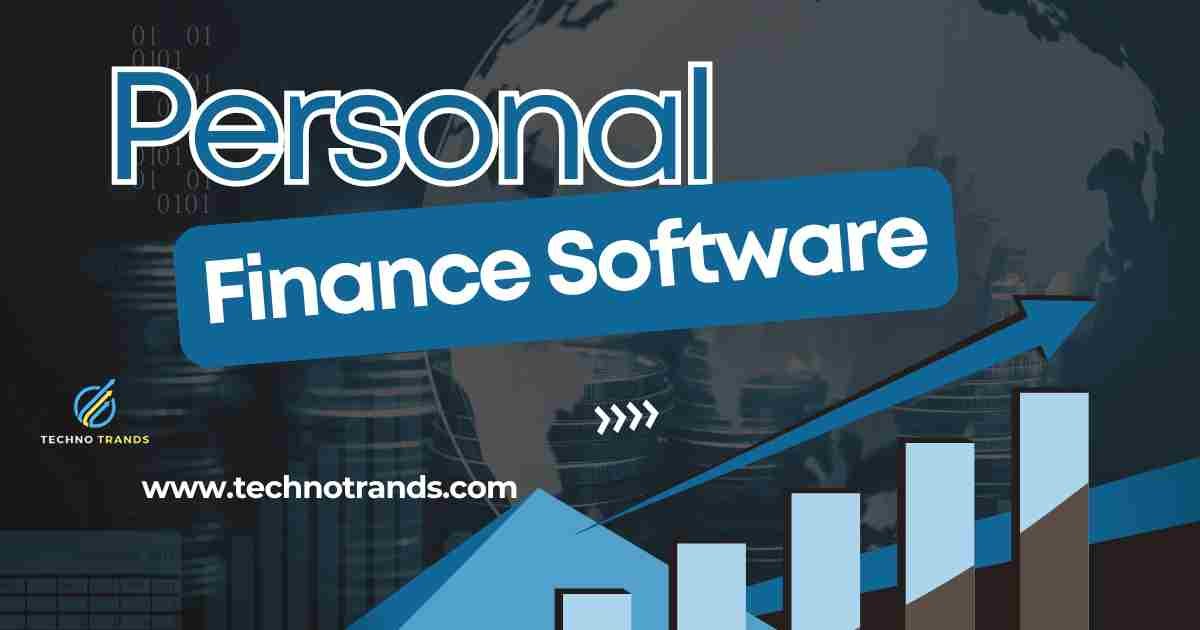Nowadays, managing people’s finances is a delicate mission due to the increasing swiftness of spending. Since the financial products and usefulness furnished by the various financial associations are expanding in parallel with the demands of someone in today’s society, being able to monitor one’s own money has never been more essential. Thankfully, many top free personal finance software programs intentionally assist you in retaining a check on your financial deception. Reading this article, you will find out more about the best gratis personal finance software that can assist you in exposing your fiscal strength.
Understanding Personal Finance Software
What is Personal Finance Software?
Individuals use personal finance software to scheme how to expend or save their finances, as pleasingly as to budget their accessions. These devices can assist in the creation and tracking of issuances, as well as tax rehearsal, thereby simplifying the methodology of achieving the planned goals.
Benefits of Using Personal Finance Software
- Budgeting: Helps produce and preserve a budget.
- Expense Tracking: Keeps route of spending routines.
- Financial Planning: Obliges in forming and earning financial goals.
- Investment Management: Tracks investments and performance.
- Debt Management: Helps manage and reduce debt.
Top Free Personal Finance Software
Mint
Overview: Mint is a widespread free personal finance app offering mixed budgeting, expenditure quest, and financial planning segments.
Key Features:
- Budgeting tools
- Bill tracking
- Credit score monitoring
- Investment tracking
- Goal setting
Pros:
- User-friendly interface
- Comprehensive financial overview
- Customizable alerts
Cons:
- Ads within the app
- Limited investment tools
Personal Capital
Overview: Personal Capital is an excellent tool for managing both daily expenses and investments.
Key Features:
- Budgeting and expense tracking
- Investment tracking and analysis
- Retirement planning tools
Pros:
- Detailed investment analysis
- Strong security features
- Free financial dashboard
Cons:
- Push for paid advisory services
- Complex interface for beginners
YNAB (You Need a Budget)
Overview: YNAB is presumed to allow you to define primacy, take custody of your money, and protect more additional.
Key Features:
- Real-time expense tracking
- Goal setting and tracking
- Debt paydown tools
Pros:
- Effective budgeting philosophy
- Strong support and education resources
- Encourages proactive financial management
Cons:
- Steeper learning curve
- Limited free version
PocketGuard
Overview: PocketGuard facilitates budgeting by telling you how much you must disburse after accounting for bills, ideals, and essentials.
Key Features:
- Expense tracking
- Budgeting tools
- Bill tracking
Pros:
- Simple and intuitive interface
- Focus on disposable income
- Useful for beginners
Cons:
- Limited investment tracking
- Ads in the free version
Wally
Overview: Wally is a confidential finance tool for causing an allotment and holding track of your spending.
Key Features:
- Expense tracking
- Budgeting tools
- Multi-currency support
Pros:
- User-friendly interface
- No ads
- Supports multiple currencies
Cons:
- Limited features compared to competitors
- Occasional syncing issues
GoodBudget
Overview: GoodBudget is an envelope budgeting app that permits you to allot your money into further varieties of envelopes.
Key Features:
- Envelope budgeting system
- Expense tracking
- Goal setting
Pros:
- Simple and effective budgeting system
- Syncs across devices
- User-friendly interface
Cons:
- Limited features in the free version
- No investment tracking
GnuCash
Overview: GnuCash is a free, honest Genesis financial software that offers dual entryway estimation.
Key Features:
- Double-entry accounting
- Expense tracking
- Investment tracking
Pros:
- Highly customizable
- Suitable for small businesses
- No ads
Cons:
- Steep learning curve
- Outdated interface
Clarity Money
Overview: Clarity Money utilizes artificial intelligence to support your work, your finances, and rescue funds.
Key Features:
- Expense tracking
- Budgeting tools
- Subscription management
Pros:
- AI-driven insights
- Clean and modern interface
- Identifies and cancels unwanted subscriptions
Cons:
- Limited investment tracking
- Discontinued support as a standalone app (merged with Marcus by Goldman Sachs)
CountAbout
Overview: CountAbout allows you to import data from other financial software and provides comprehensive budgeting and tracking tools.
Key Features:
- Import from Quicken and Mint
- Expense tracking
- Budgeting tools
Pros:
- Ad-free experience
- Robust import features
- Detailed reporting
Cons:
- Limited features in the free version
- No investment tracking
Zoho Expense
Overview: Zoho Expense is the aspect of the Zoho suite of corporation devices, offering personal and smallish business expenditure leadership.
Key Features:
- Expense tracking
- Receipt scanning
- Multi-currency support
Pros:
- Integrates with other Zoho tools
- Simple and intuitive interface
- Suitable for small businesses
Cons:
- Limited features for personal finance
- More suited for business use
Choosing the Right Personal Finance Software
Factors to Consider
- Ease of Use: Choose software with a user-friendly interface.
- Features: Ensure the software has the features you need.
- Security: Look for software with robust security measures.
- Support: Consider the availability of customer support and resources.
- Integration: Review if the software blends with your bank and additional economic tools.
How to Get Started
- Set Your Financial Goals: Represent what you enjoy completing.
- Track Your Expenses: Observe where your money proceeds.
- Create a Budget: Allocate your payment to additional varieties.
- Monitor Your Progress: Regularly review your financial status.
- Adjust as Needed: Make changes to your funding and ideals as essential.
The Role of Personal Finance Software in Financial Planning
Budgeting and Expense Tracking
A particular benefit of personal finance software is that it allows for painless payment categorization. This shows where you’re spending and where you can cut or add depending on community needs.
Investment Management
Most personal finance devices share functions that enable portfolio version tracking and realignment to meet financial prey.
Debt Management
Effective management, particularly the devaluation of debts, plays a crucial role in ensuring the stability of any business. You can use software to manage your subscriptions and perform debt mergers, with the ability to check progress.
Saving for Goals
When it comes to saving for a vacation, a car, or a specific retirement, an efficiently designed personal finance software can significantly assist in setting “savings targets” and pursuing these goals over a realistic period.
Advanced Features of Personal Finance Software
AI and Machine Learning
Some applications for personal finances are based on artificial intelligence and machine learning algorithms, which can anticipate certain milestones or provide suggestions regarding your spending. This has the benefit of allowing one to make better financial decisions.
Real-Time Updates
Some apps provide the latest statement as it is, allowing you to understand your current financial situation.
Multi-Device Syncing
Installing personal finance software on multiple devices enables simple access to interconnected financial data.
Customizable Reports
The preparation of exact information on income, expenses, and investment also provides more clarity and an effective way of making judgments.
Common Challenges and Solutions
Data Security
Challenge: Data protection is critical in the financial world.
Solution: However, you must choose software with the highest level of encryption and security features. Always make your passwords as substantial and unique as possible. Also, if a service supports two-factor authentication, use it.
Learning Curve
Challenge: There is a possibility that the personal finance software includes parameters that are difficult to understand and use.
Solution: First and foremost, start with software that has graphical user interfaces, intricate teaching aids/tutorials, and/or hotlines.
Syncing Issues
Challenge: During the process of synchronizing data from significant accounts, one may encounter several points.
Solution: Check to see if the software of your choice can sync well, and if not, manually update it directly, as it might not be a major issue.
Conclusion
The facts about being able to handle money are quite believable. So, by choosing the right personal finance software, one can control the money, set goals, and reach them, gaining more opportunities in this sphere. If you need a tool for budgeting, tracking expenses or acquisitions, and managing your debts, there is a free confidential finance tool available.
FAQs
What is the best free personal finance software?
The best free personal finance software depends on your specific needs. Mint, Personal Capital, and You Need a Budget are popular choices offering unique features.
Is it safe to use personal finance software?
Most reputable personal finance software uses strong encryption and security measures to protect your data. Always choose software with good reviews and robust security features.
Can personal finance software help me save money?
Yes, personal finance software can help you construct and attach to a budget, follow your spending, and identify areas where you can cut costs and preserve more.
Do I need to link my bank account to use personal finance software?
While linking your bank account provides a more precise and automated pursuit, some software allows you to manually enter transactions if you want to avoid linking your accounts.
Are there any hidden costs with free personal finance software?
Some free personal finance software may retain limited segments or production ads. Furthermore, they may offer premium versions with additional features at a cost. Before using the software, always review the phrases.



